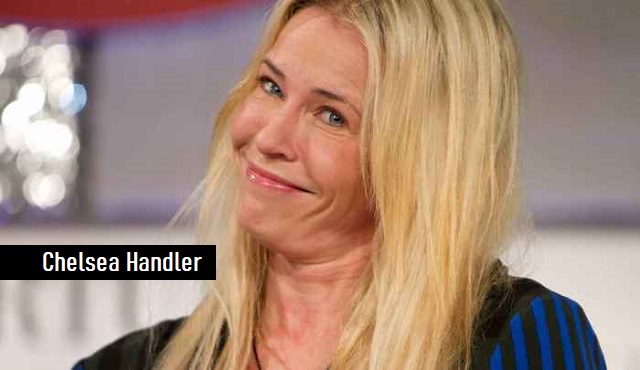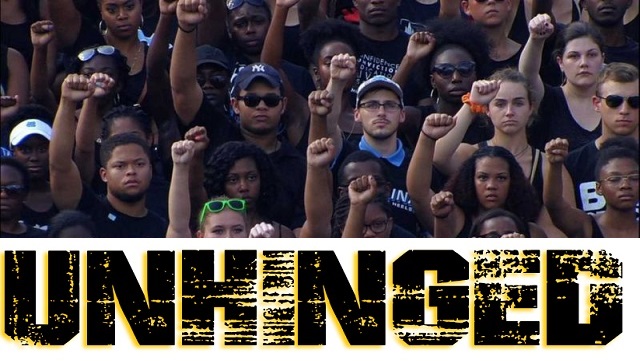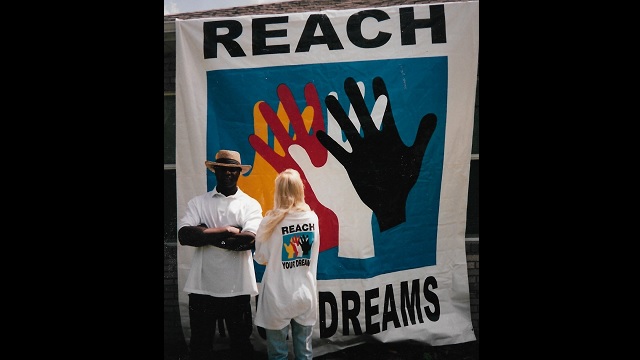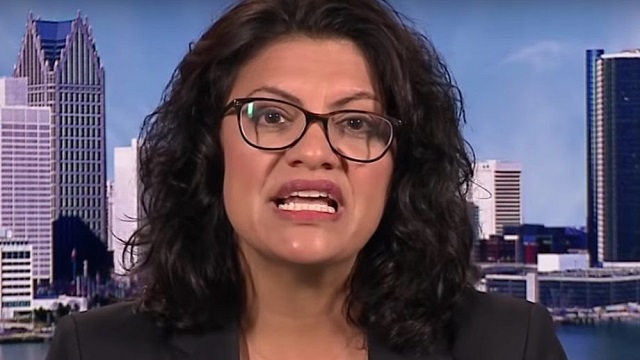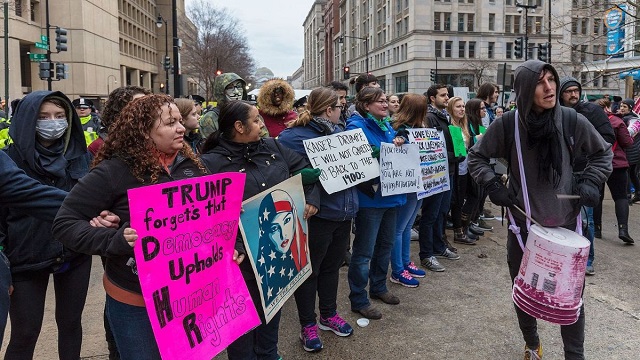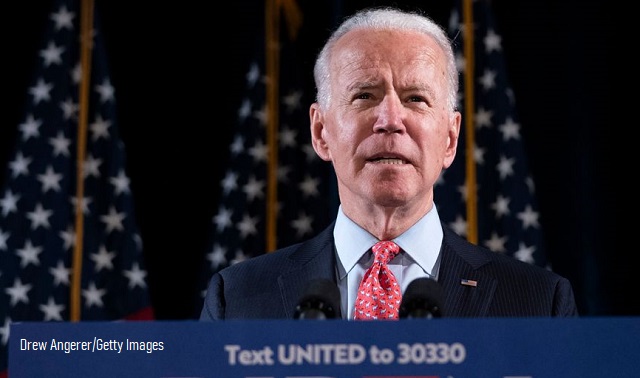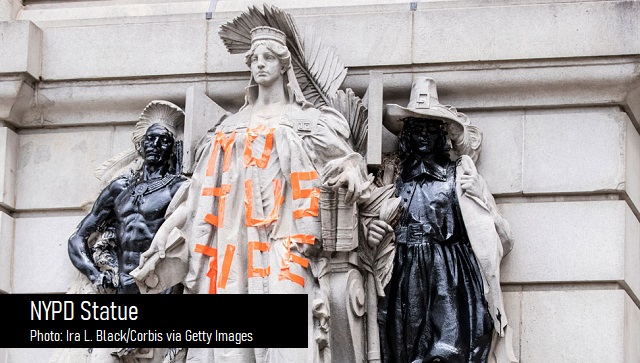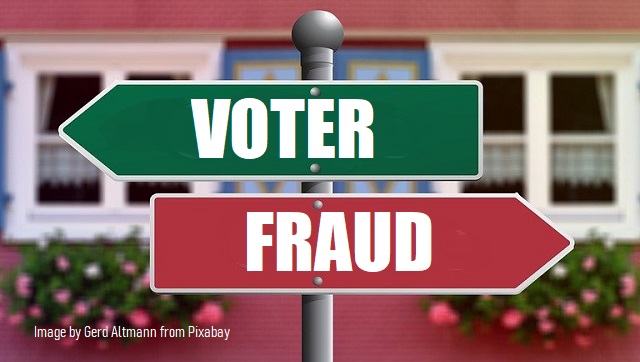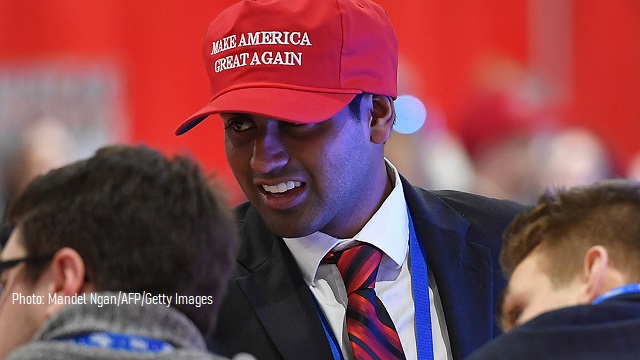
President Donald Trump’s policies are helping minority communities across America. Today, Horace Cooper, senior fellow at the National Center for Public Policy Research and co-chairman of Project 21, joins the show to discuss his new book “How Trump Is Making Black America Great Again: The Untold Story of Black Advancement in the Era of Trump.” Cooper explains why he believes African Americans are advancing under Trump’s leadership.
We also cover these stories:
- The Supreme Court decides 7-2 that the Little Sisters of the Poor won’t be forced to provide abortion-inducing drugs or birth control to employees as part of the Catholic order’s health care plan.
- The Supreme Court rules in favor of Catholic schools in a case balancing religious freedom with employment law.
- Alexander Vindman, a central witness in Democrats’ effort to remove Trump, announces his retirement.
“The Daily Signal Podcast” is available on Ricochet, Apple Podcasts, Pippa, Google Play, and Stitcher. All of our podcasts can be found at DailySignal.com/podcasts. If you like what you hear, please leave a review. You can also leave us a message at 202-608-6205 or write us at letters@dailysignal.com. Enjoy the show!
Virginia Allen: I am joined by Horace Cooper, senior fellow at the National Center [for Public Policy Research], Project 21 co-chair, and the author of “How Trump is Making Black America Great Again: The Untold Story of Black Advancement in the Era of Trump.” Mr. Cooper, welcome to the show.
In these trying times, we must turn to the greatest document in the history of the world to promise freedom and opportunity to its citizens for guidance. Find out more now >>
Horace Cooper: Hey, it’s great to be on today.
Allen: Well, congratulations on the book, it just released and we’re so excited to talk about it today, learn a little bit more about it. Can you begin by just telling us why you chose to write it?
Cooper: Sure. One of the things that led me to write the book has been, I travel across the country, I speak to a lot of groups, I do a lot of media, and I’m always asked this question about how either the Republican Party, or now President [Donald] Trump in particular, how could anyone embrace or support or be enthusiastic about who the president is, Donald Trump, or, at the time, when Republicans controlled the House of Representatives, when I started this book.
In all instances I was asked this question, “Isn’t it true that black people have to fear from conservatives? Isn’t it true that only liberals and progressives have anything positive to offer for black America?” And I wanted to write this book so I could show with data, with actual data, what’s truly going on in America. And that in fact, there is a lot for people to really, really be excited about.
Allen: So the book is titled “How Trump is Making Black America Great Again: The Untold Story of Black Advancement in the Era of Trump.” You mentioned data, can we get into a little bit of just those ways that the black community has advanced under Trump’s leadership?
Cooper: One of the first things that I want to let everyone know here is, and part of what’s important, what we see today in 2020 is, in many instances, a representation for most people of the reality that they know. And they pay little attention to 10 years ago, they pay almost no attention to 30 years ago, and it is inconceivable to understand or comprehend a hundred years ago.
Here’s the truth—and this is why I really think it’s helpful to look at the data—a hundred years ago, 1920 black America actually was doing an amazing level of achievement. Black America had a higher employment rate than the rest of the country, black Americans were represented in federal prisons at the lowest level of any race group.
In fact, black men and women were married at either the same or higher rates than the rest of the American population. And children were growing up in households where their parents, if they were black, were as likely or more likely to be married.
We don’t think of that today because the numbers are so divergent. There were more black millionaires in the 1920s than there were in the 1970s, even though the population of America had exploded by the time of the 1970s.
So one of the things that I wanted to point out with the data today is how improved black America is over where black America was in just 10 years ago and even 30 years ago. Black America unemployment is skyrocketing in contrast.
Allen: What happened that we went from black America being so successful and having stable homes and jobs to then this real downward slope that now we’re seeing President Trump helped to pull that community out of?
Cooper: Yes. So that’s the great question and that’s the question that often goes unanswered. And the reason it goes unanswered is many people erroneously conclude that whatever’s happening today or whatever happened in the last 10 years is the way that it’s always been.
We had policies under Warren Harding and Calvin Coolidge that said it was not the job of government to solve every problem, it was the responsibility of the individual. They supported free enterprise, they supported very, very limited regulation on the part of government. And … if you apply yourself, if you try, you will be amazed at the kinds of things that can be accomplished.
What Donald Trump did was very, very similar to those policies that led to the period that we call the Roaring ’20s. He pulled government back in terms of regulation, he pulled government back in terms of taxation. He made it possible, as I point out, we had a record in 17, 18, 19 of the number of new small businesses that black Americans created.
What you have to have happen is an environment where you are making policies that are great for the country. And when they’re great for the country, it turns out the least among us benefit even better. And that’s the real story of my book is that black Americans actually have done better in almost every single category than other groups in America. And certainly better than the average American.
Allen: You talk about something called MAGAnomics in the book. Can you explain what that is?
Cooper: Sure. MAGAnomics is the idea that it’s not government’s job to promote the interest of international corporations, it’s not the job of government to see to it that every type of foreigner who is interested in coming to America gets the opportunity to do so.
Now, that’s not the same thing as saying, “You can’t come.” But it is saying that’s not going to be the priority.
Black Americans have been the biggest losers with the advance to push for international workforces, particularly from Latin and South America.
We’ve seen unbelievable amounts of job undercutting and one of the reasons that that can happen is, if you’re in the country unlawfully or you’ve overstayed your visa, you are able to negotiate with your employer to opt out of Social Security, to opt out of Medicare, to opt out of all of the kinds of things. [You] even can opt out of the minimum wage, you’re working illegally. Therefore, it’s easy to have the conversation and get the ability to be such a low-priced worker.
That means that if you are a moderate- to low-skilled black American or white American, you’re displaced by people who can completely and totally underbid you. And over the last 10 to 15 years, there has been a major push to encourage those kind of workers who are not here lawfully.
MAGAnomics says that we’re going to focus on Americans, we’re going to focus on those who are citizens, and we’re going to make it easier for citizens to be able to work. Your taxes are going to be lower, the cost of you having your job is going to be lower for the employer because we’re going to lessen the regulatory burden.
And we’re going to put barriers up so that the only foreign workers who can come to America will do so in a lawful way and they will do so with the support that the government has always intended, that either sponsors or employers are supposed to provide. And that has had huge, huge benefits for black America.
Allen: Wow. So in other words, kind of the narrative that we so often hear from the left is kind of like, open borders will be better for everyone. But also there’s so much talk of various programs that will lift up minority communities, but you can’t have it all.
Cooper: Right, let me give you another example, by the way. It’s federal law that if you’re in the country unlawfully, that federal taxpayer services are not supposed to be provided to you except in emergencies and a few other rare areas. But most local and state jurisdictions, they pick and choose whether or not they’re going to use their dollars.
So you have 65 schools in a particular community or jurisdiction. If you bring in people who are not supposed to be in the country lawfully, they are overwhelmingly less likely [to] speak English fluently and so they’re going to need additional services.
There is a huge differential in terms of the type of social services, whether it’s alcohol or drug abuse, whether there’s domestic violence in a given household. All kinds of services are having to be provided. And many of the Latin America and other foreign or international visitors who’ve overstayed their visa unlawfully are using those local resources.
What does that mean in practical terms? That means that in your classroom, instead of there being an advanced math class that you would be able to take, scarce resources are redirected for foreign language conversion efforts to help advance the ability of people who don’t speak the English language.
That means that if you presently don’t have health care and you’re going to a community-provided clinic for assistance, well, you look around and sizable numbers of the people that are sharing that clinic with you are people who are non-residents.
So you’re not seeing an explosion in resources for education locally, you’re not seeing an explosion in resources for health and other related social services. What you’re seeing is black Americans and other working-class people of all races having to compete for those scarce resources.
And let me give you the last part, the hammer is that most of these jurisdictions charge a regressive tax. So unlike the progressive tax at the federal level, which can exempt largely its impact from those who are working class and lower income, the regressive tax hits the working class the hardest.
So you actually, as a poor person, whether black or brown or white, you get to pay for the privilege of providing lower-quality education for yourself, your child, and for the foreigners who were competing with you.
MAGAnomics says we’re going to shift the priority so that the resources that are available actually do benefit Americans as the federal law intends.
Allen: You talk about how many people, specifically white liberals, are shocked when they learn that you’re a conservative, you’re from the South, you’re African American. Can you just share a little bit of your own story of how you developed the political views that you have and became a conservative?
Cooper: So, I am a part of an impact family. My mother and father were part of a tradition in the state of Texas and in the South generally, where certain types of values mattered and that meant that my mother and father were married before I was born.
Now, because they came from a much more lower-income circumstance in rural Texas, they didn’t go off to college before we were born, they had to wait until after we were born. Why, though, did that happen? I say it’s my grandmother, Virgi P. Johnson.
Virginia Johnson had an idea and that idea was that her nine children were going be independent and self-sufficient. Seven of the nine not only were college graduates, but like my mother and several of her sisters, they got master’s degrees and Ph.D.s.
They understood, based on the experience, a summer I spent with my grandmother where she explained that even though she grew up in the midst of Jim Crow segregation, … it did not mean that she couldn’t provide for herself. And she bragged that she never relied on social services, never received food stamps, and encouraged us to be like that. Focus on your education, focus on your skill development, make sure that you can become independent.
Now, when we would stay with my grandmother, we lived in rural Texas and she had indoor plumbing, but she didn’t have a washer and a dryer, she didn’t have a dishwasher. That meant that when I was 5, 6, 7, or 8, all those kinds of tasks that normally we have appliances that help us out with, that was our job and she trained us.
I’ll give you a quick story, we had to hand wash clothes outside and we would do it early in the morning and it was cool because summers are very hot in Texas.
But the washboard that she used was too big for us as little kids. So she made a deal with us, if we agreed to do some extra chores, we could earn the money so that we could buy our own washboards that were smaller in size. We did extra chores and got the smaller washboard, which made it possible for us to wash even more.
That is counterproductive to what you see in many communities where people are shirking, people are trying to get away from work, people are trying to get away from responsibility.
My grandmother got us up at 5 a.m., sometimes earlier, I’m a morning person because of that. My grandmother saw to it that by the time I was 3, that we started reading, my brother and I. We need the ability in many of our communities to have this kind of attitude and this mindset.
I grew up where it was taken for granted that you were going to hit your books, I grew up where it was taken for granted that you’re going to stay on the right side of the law.
I never had to have “the talk,” instead I had the, “You’re going to be home on time, you’re going to be respectful in the classroom, and you’re actually going to be the kind of person that will amount to something,” as my grandma would say.
Allen: Wow, your grandmother sounds like an incredible lady, my goodness. What an honor to have that influence in your life. And those things that she obviously taught her children and her grandchildren so well, those are the exact principles that it’s so evident our nation is in need of today.
How do we further that narrative of empowerment that your grandmother obviously instilled in you? And really pull back from this victim mentality and mob rule and just this really, really negative narrative that we’re seeing played out right now by the left?
Cooper: So, my grandmother had this benefit, if she didn’t do it right, no one was going to do it for her. We have the detriment now, if you don’t do it right, don’t worry, someone is going to do it for you.
Getting up early can be hard, working long hours outside also can be hard. I got to see my grandmother save up and pay cash for a house that she lived in until she died when I was in junior high. No mortgage, she never ever had a mortgage, paid cash.
We don’t hear that mindset, instead we live in a society where, all too often, if you’re having a difficulty, if you’re having a challenge, well, you’ve got an idea, there’s a government program for that. Well, my grandmother had a different idea, apply yourself, strive, work at it, and you will be amazed at what you can accomplish.
One of my biggest regrets, I hadn’t many, but one of my biggest regrets about the Obama administration was his failure to accept the role as a model.
There are many black kids who [attend] struggling schools, many of those schools don’t work well. They’re overrun by unions more interested in featherbedding themselves than ensuring those children achieve.
But what [President Barack Obama] could have said to young people, black, white, or brown, “Apply yourself, try, make the effort. America is such an amazing place, even with whatever struggles I have had, I ultimately was able to become president of the United States. If I can do that, you can too.”
Now that would have been more aligned with the kind of opportunity to model that my grandmother was able to do and that would have given true hope to people.
Instead he castigated America, he said America wasn’t fair. He said that America wasn’t interested in giving black America a shot. And it was like a lottery land or something that we had a black American who happened to be president. Not that we are the exceptional, amazing country on the planet where that’s possible.
Name a European country, name a Latin America country or a South American country where they have one member of their minority, a black man or woman, as their prime minister or president. You keep looking because you are not going to find it.
America is that kind of a place and that would have been an amazing example for him to repeat over and over again. Even with his bad economic policies, by encouraging people to strive and achieve, he could have had a positive effect.
Allen: Mr. Cooper, I want to give you just a moment to share a little bit about Project 21 and the work that you’re doing there.
Cooper: Project 21 is actually now 25 years old, I’m a founding member and I only recently became a co-chair.
Project 21 is made up of black Americans who recognized during the riots in the wake of the Rodney King trial—during those riots we were informed by the media in an airy way, the same way we are today, that the rioting, the looting, the violence, the mayhem are legitimate out workings of the frustrations that black Americans feel.
And we looked around, I talked to many professionals, I talked to many middle-class educated black Americans and asked, “Is that your idea of how people achieve change or express angst?”
So Project 21 was founded so that we could provide the other perspective, the other view that families matter, that the private sector is far more important than the government sector. That people need to have initiative and be motivated with the kinds of community organizations like the Boy Scouts, … [the] Future Farmers of America, like I had when I was a kid, that help our communities develop and be better.
We need more of that and so Project 21 tries as much as it can and as often as it can to be able to do that. There are good policies that are great for our country and they’re great for minorities. That’s the purpose of my book, that’s the story of my life. If you help the least among us, the best way to do that is to help all of us.
Allen: And how can our listeners follow your work and the work of Project 21?
Cooper: Sure. You can check us out at www.nationalcenter.org, at the National Center for Public Policy Research, or you can follow us on Twitter, @project21news. I’m on track right now to do 420 radio and TV appearances this year, so I’m sure a quick search of Google you can find me or many of the other members of Project 21.
Allen: Wow, you have a busy year. That’s impressive. Well, for all of our listeners, you can purchase the book “How Trump is Making Black America Great Again” on Amazon, Barnes & Noble, I even found it at Target. So be sure to look it up, great read. Mr. Cooper, thank you so much for your time.
Cooper: Thanks for having me today.
COMMENTARY BY
Virginia Allen is a news producer for The Daily Signal. She is the co-host of The Daily Signal Podcast and Problematic Women. Send an email to Virginia. Twitter: .
A Note for our Readers:
This is a critical year in the history of our country. With the country polarized and divided on a number of issues and with roughly half of the country clamoring for increased government control—over health care, socialism, increased regulations, and open borders—we must turn to America’s founding for the answers on how best to proceed into the future.
The Heritage Foundation has compiled input from more than 100 constitutional scholars and legal experts into the country’s most thorough and compelling review of the freedoms promised to us within the United States Constitution into a free digital guide called Heritage’s Guide to the Constitution.
They’re making this guide available to all readers of The Daily Signal for free today!
EDITORS NOTE: This Daily Signal column is republished with permission. ©All rights reserved.
